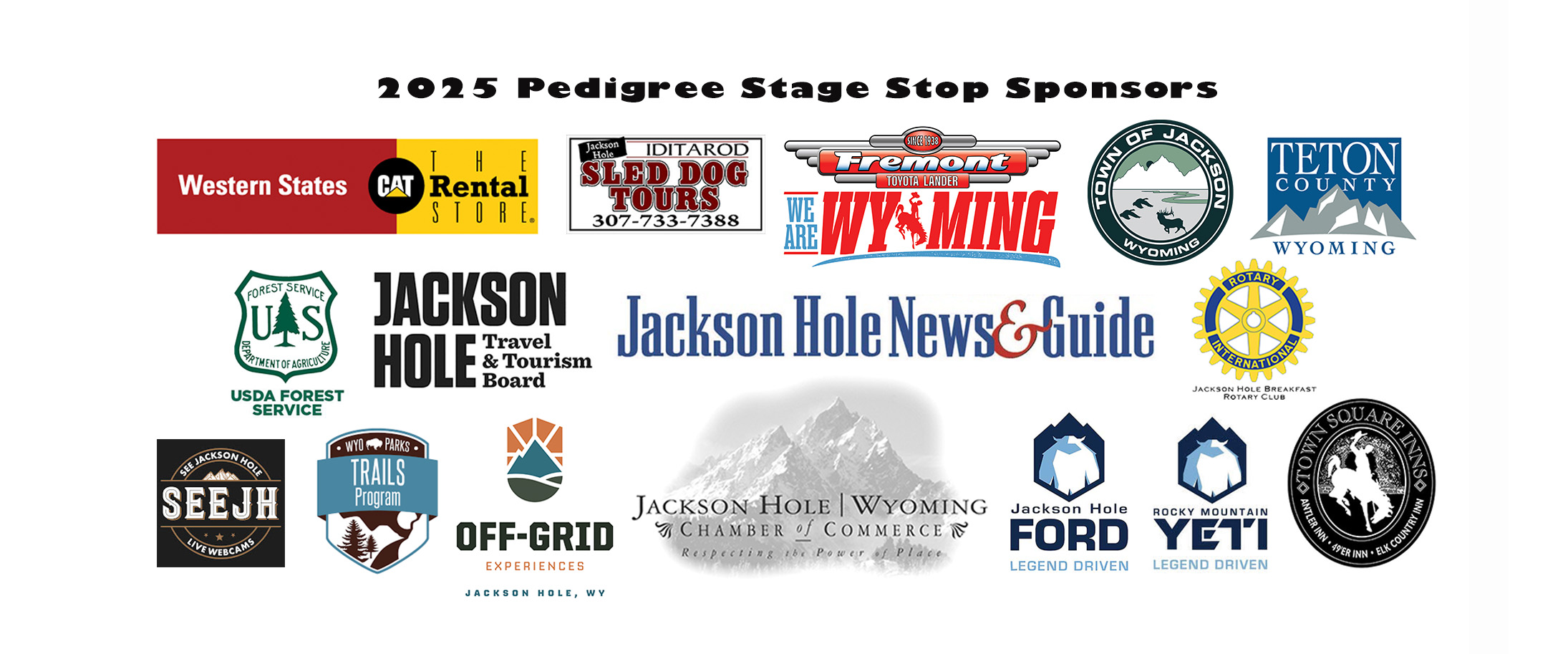By: Jerry Bath
With only two weeks away mushers are making final preparations for the 2018 race. Where are they now? What does it take to make it to this prestigious event? I will be answering some of these questions and more in general averages as well as a few specific mushers.
How far do they drive to get here? Jeff Conn travels the farthest with 2,600 miles and Alix Crittenden is the closest with just 40 miles. With the average distance being 1,104 miles one way.
Average cost to run the Pedigree Stage Stop main event including, entry free,fuel,lodging and meals can vary greatly. Taking into account that several mushers come to acclimate from a few weeks to a few days before the race starts. My average estimated costs would be $3,700. This can be done much cheaper, I know from experience.
Training: Well this is probably one of most asked questions by fans and mushers alike. It all starts when the weather begins to cool a bit. Anywhere from late August to early October. Some start with a free running program, others have exercise wheels. (A modified hot walker of sorts for horses) or hooking them up to an ATV or truck. Starting with just a few miles at a time. Working there way up to a comfortable race distance. Too much of an increase too soon can slow a team down. For stage racing this can be a big problem.
Always keeping the team’s spirits high is very important. All of these adjustment are very weather dependent. Just because it’s winter time doesn’t mean the conditions are ideal for training. It can range from -40 and icy trails to + 60 F and slush in the same week in some areas.
Dogs: The number of dogs in a kennel can play a small part in a competitive team.
Race kennels in this years race range from 20 to 150. Not all dogs in a kennel are going to be on this year’s race team. Some are too young or just learning while others are in the retirement team. Some of us even have a house dog or two that were on previous race squads.
Time: This also varies greatly as some mushers work full time. Others work seasonally and can devote more time when it’s needed. We have a few that have tour kennels as their sole source of income and this can be a double edged sword. You have to try and find the time to train a race team by not taking away from your busy season.
No one has a perfect training year. Mother Nature and life are always changing things up.
This all brings you to race day. Time to roll the dice and give it your best shot.
I suggest just showing up and giving it a whirl, you might be surprised and say “ I should have done this sooner!
